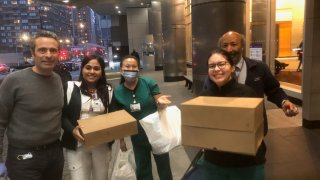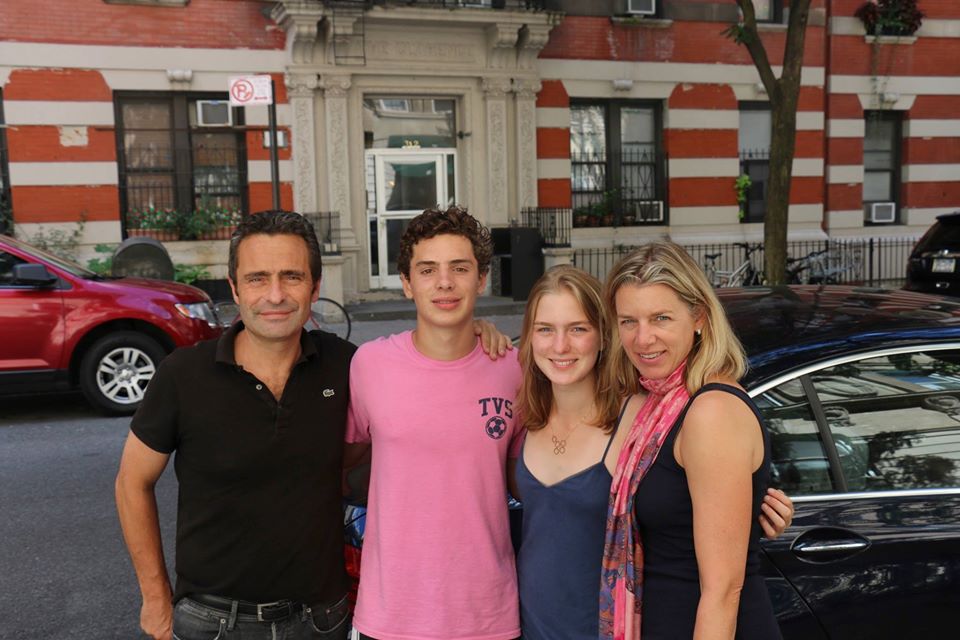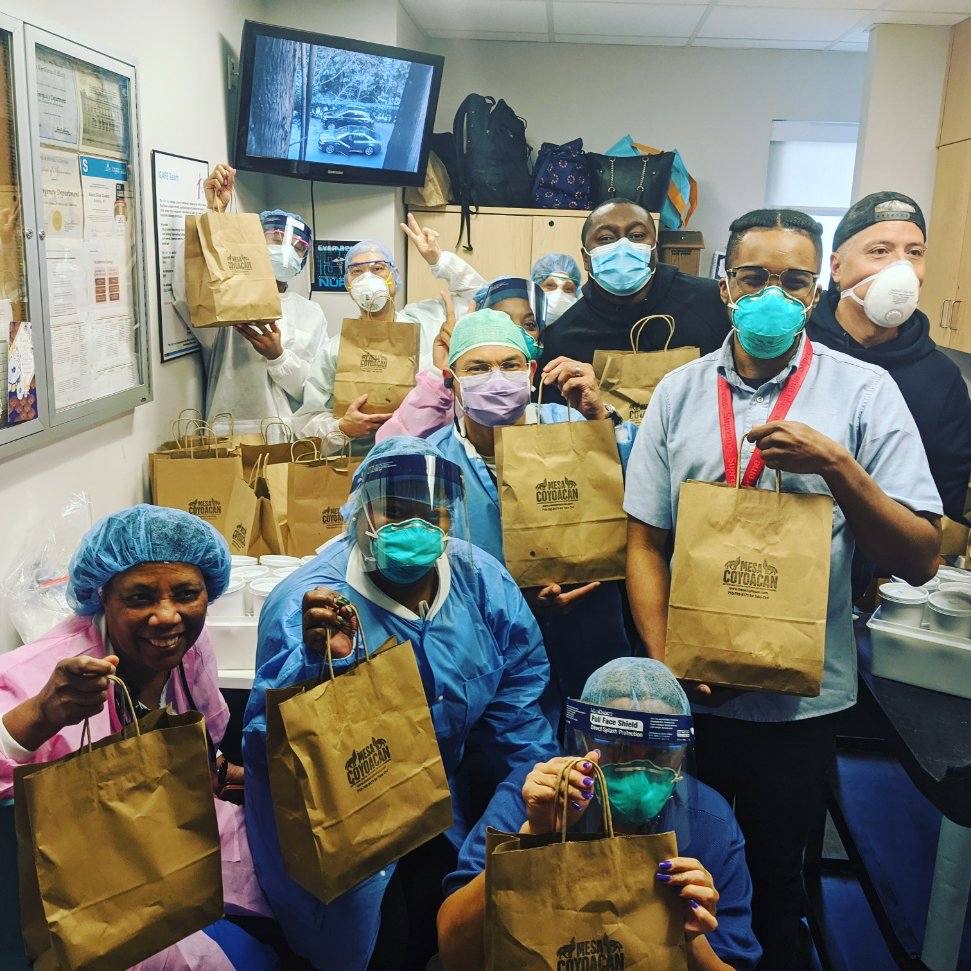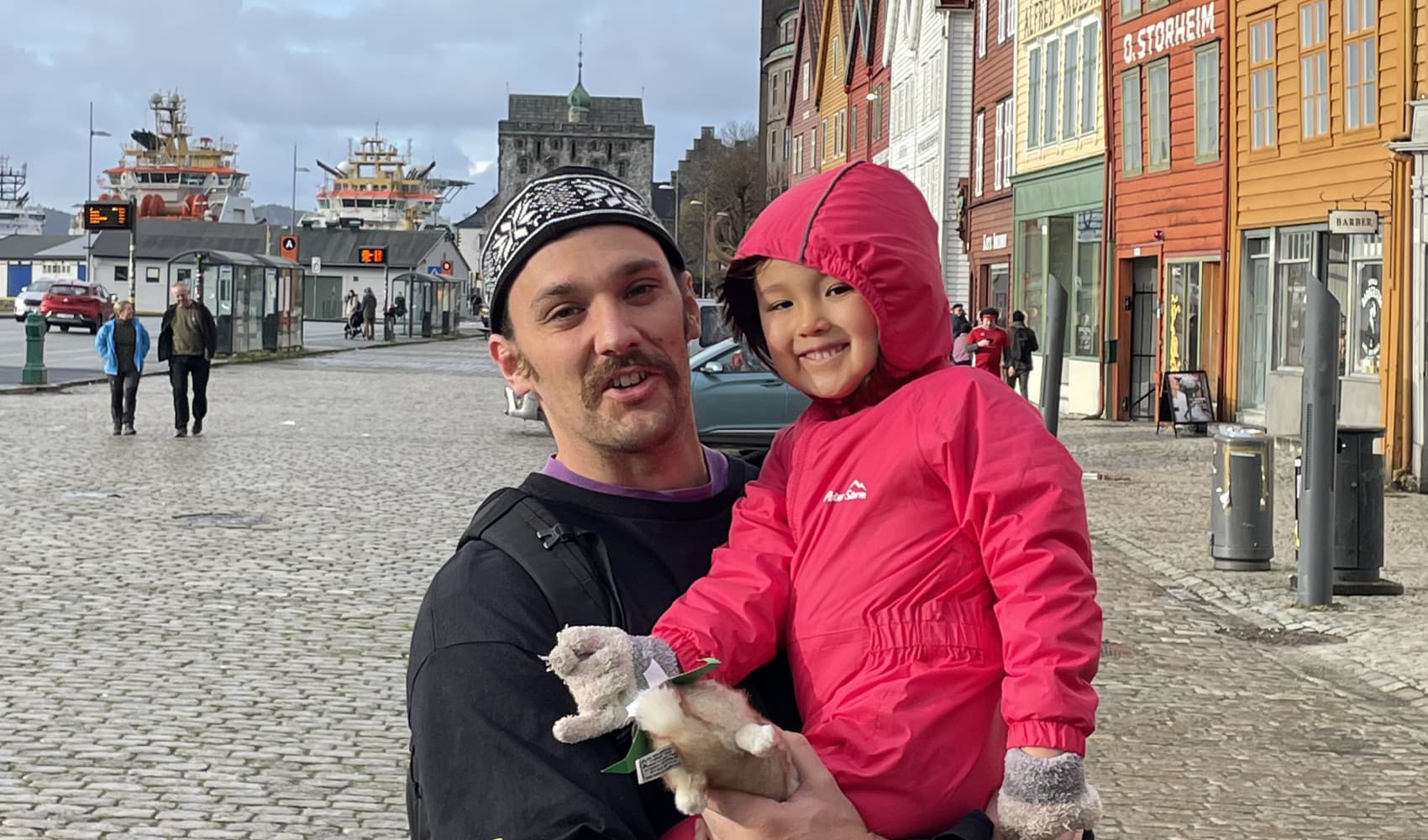
Restaurateur Luca Di Pietro and his team have become known as the "lasagna guys" among New York City's frontline workers. That's because Di Pietro and his team have helped deliver more than 64,000 meals to healthcare workers amid the Covid-19 pandemic.
"The lasagna is always a big hit," Di Pietro, 50, who is the owner of Tarallucci e Vino restaurant group in Manhattan and now the founder of Feed the Frontlines NYC, tells CNBC Make It.
"It puts a smile on my face. It's hard times...at least they get to eat something good. To think the food has been brought by and prepared by New Yorkers is a morale boost for frontline workers," he says.
Di Pietro started Feed the Frontlines NYC, a for-profit initiative, to raise funds for his restaurant, Tarallucci e Vino, and other local restaurants and to provide hospital workers in the country's hardest hit city with free and delicious food. So far the initiative has raised over $1.26 million to pay for meals, and its success has even inspired others to create their own Feed the Frontlines initiatives in other cities.
Beyond feeding local hospital workers fighting the pandemic, Feed the Frontlines has helped keep participating restaurants alive and their workers employed.
"We have ... restaurants helping us and delivering food so they can keep their lights on," Di Pietro says. "It's morphing into something that I didn't expect, but I'm very happy to be able to put together supply and demand."
It started with a call from a friend
Money Report
The idea for Feed the Frontlines NYC germinated in March when a friend of Di Pietro's called.
"She said, 'I'm so sorry you have to close your restaurants," he says. (Di Pietro closed four of his five restaurants on March 15.) To help, she offered to pay for meals prepared by Di Pietro's restaurant to be delivered to a New York City hospital.
Di Pietro and his wife, Kate, 53, immediately thought of NYU Langone's Tisch Hospital. The hospital treated the Di Pietros' son, Ian Di Pietro, now 19, "when he was very young and very sick," Di Pietro says.

The Di Pietro family: Luca (left), Ian, Isabella and Kate (right). Courtesy of Luca Di Pietro
So on March 19, Di Pietro and his wife Kate delivered 40 meals from Tarallucci e Vino, including the popular lasagna dish, to the hospital's Emergency Room.
"At the end of that day, when people from the ER came out [to accept the meals on March 19] they were so thankful and happy that somebody was thinking about them," Di Pietro says.
"They were getting very busy" with Covid-19 cases, he says.
"They had no time to get out of their protective gear – it takes 20 minutes to get completely out of protective gear to go and find food. And there not many places you could easily go and get food."
After that first delivery Di Pietro thought, "if there is such a need from the emergency room workers, maybe this could help save my restaurant while we do something good for the emergency room workers," he says.
"I thought that this would be something that could help us and also help others."
Di Pietro reached out to other hospitals in New York City to continue deliveries and shared his plans with friends. From that point forward, orders for hospital workers began to flood in to his restaurant.
"A friend of mine right away said, 'Next time you find any others that would like to accept a donation, put me down for 50 meals'" (at a cost of $1,250).
"Of course, the day after, we delivered 50 meals to the ER at one of the NYU Langone's hospitals at Sunset Park," he says, referring to NYU Langone Hospital-Brooklyn.
How the Feed the Frontlines NYC initiative grew
To organize the ordering process and manage donations, Di Pietro created Feed the Frontlines as a business that operates as part of his corporation Il Rifugio Inc., according to the initiative's website. Di Pietro's daughter, Isabella, 22 and a senior at Harvard University, created a website, and the initiative launched March 21.
The reaction was unexpected.
"We launched the website around 11:00 a.m., and by 8:00 p.m., we had about $12,000 in purchases" after sharing it on social media and by word of mouth, Di Pietro says. By mid-April Frontlines NYC was delivering about 1,000 meals a day to about 20 different hospitals in New York City, he says.
One of the biggest donations Di Pietro has received is $150,000 from The Paul E. Singer Foundation, he says.
"The Paul E. Singer Foundation has brought in a bunch of restaurants to whom we're going to give contacts [to the hospitals in need] and they're going to fill the demand. Some of them include Russ and Daughters, Katz Deli. They're working with the New York Jewish Food Society," he said. "The more the merrier."
(The Paul E. Singer Foundation declined CNBC Make It's request for comment.)
The demand allowed Di Pietro to bring back 35 employees to work at his Upper West Side restaurant location, one of five in the restaurant group. (Di Pietro's other four locations remain closed and 60 other employees have been laid off.)
NewYork-Presbyterian Weill Cornell Medical Center residents with delivered meals. Courtesy of Luca Di Pietro
Inspiring other businesses
As more and more funding came in, Di Pietro partnered with other restaurants in New York City and lower Westchester County, New York, which is about 30 miles from Manhattan.
"Two restaurants in Williamsburg are doing deliveries," Di Pietro says, referring to Mesa Coyoacan and Zona Rosa in Brooklyn. (A friend connected Di Pietro and the restaurants' owner Jorge Boetto.)
And "some of the other restaurants we're working with are bringing food to [hospitals] in the Bronx."
In partnership with Di Pietro, the restaurants receive a portion of the donations to make and deliver meals to local hospitals. (Di Pietro also recently teamed up non-profit organization The JoyJ Initiative to collect donations for Feed the Frontlines NYC so that they are tax deductible). Each restaurant is given a different amount of money depending on how many meals it can make and deliver each week, Di Pietro says. The restaurant owners coordinate their deliveries with local hospitals and send meals themselves.

Hospital workers at Mount Sinai Brooklyn with meals delivered by Mesa Coyoacan. Courtesy of Luca Di Pietro
"We were in a dire situation because we had to shut down and we had a lot of bills to pay," Boetto tells CNBC Make It. After partnering with Frontlines NYC, Boetto says he was able to bring back 10 of the 30 employees he had let go.
"We are doing 100 meals a day, seven days a week. So 700 meals a week" as of April 21, according to Boetto.
"It's really moving to be able to bring meals to [the hospital workers]," he says.
Feed the Frontlines NYC also inspired sister initiatives in other cities. Though Feed the Frontlines NYC is not affiliated with the other initiatives, friends of the Di Pietro family started similarly named and run initiatives in Boston; Marin, California; and Miami. Those initiatives have collectively raised over $196,000 as of Wednesday, according to the initiatives' websites.
When family friend and high school senior Kylie Frame heard about Di Pietro's initiative, she started Feed the Frontlines Marin.
Marin, one of the wealthiest enclaves in the San Francisco Bay Area, "has been very lucky to not be hit quite as hard [as New York City with Covid-19 cases]" for the most part, Frame tells CNBC Make It. "But with [California's] lockdown comes quite a bit of stress and problems for restaurant owners. So we still wanted to do something to support them."
Frame and her family reached out to and partnered with local restaurant owners to deliver meals, smoothies and other treats to hospital workers. In addition, they have delivered to employees working at local grocery stores, pharmacies, child care centers and the San Quentin State Prison staff.
"It's been great to stay engaged in the community and it's been an amazing distraction from the loss of my senior year," Frame says.
In Miami, the operations team at Divieto Ristorante started Feed the Frontlines Miami after learning of Di Pietro's initiative, supervisor Joan Saenz tells CNBC Make It.
"We were already delivering some meals to hospitals and fire departments. But there is only so much we can do out of our own pocket," she says.
By starting Feed the Frontlines Miami, Saenz says Divieto Ristorante was able to raise funds and bring back 30 employees.
Shawn Wilson, co-owner of Shed's BBQ and Viga Eatery, started Feed the Frontlines Boston.
"It was great because we were looking for something to do [amid the pandemic] and knowing that food brings people together, we thought this would be a great thing to bring some of our people back to work and to be able to make a positive impact," Wilson tells CNBC Make It.
In starting this initiative, she was able to rehire 13 employees and deliver to 14 local hospitals.
"It's so rewarding," she said. "A mother [of a hospital worker] said 'I haven't seen my daughter in five weeks. Can you please take dinner to her?' A father said, 'Thank you so much for bringing a dinner to Boston Medical Center, because my son said that's the best meal he's had in the last week.'"
The road ahead
Di Pietro, who moved to the United States from Abruzzo, Italy after college, was inspired by his mother and grandmother "who were great cooks." He opened his first restaurant, Tarallucci e Vino, in the Union Square area of Manhattan in 2001.
"We offered something that reminded us of home, of Italy, and the connection that I still had with Italy," he says.
The pandemic has greatly changed not only Di Pietro's business but also the whole industry, perhaps permanently. Many restaurants may not be able to reopen after the Covid-19 pandemic, "especially in New York City where rents are so high," he says.
"It's so uncertain. If I have to open my restaurant with social distancing, it may not be worth reopening," he says. "It's really uncharted territory. We do not know what the face of restaurants will look like in New York City and in the country."
Luckily, "we have a lot of amazing customers and friends, and they all want to help us," Di Pietro says.
"This is keeping the lights on for us and others," he says. "Otherwise, there would be no business. And with rent due and salaries, for all the personnel basically living paycheck to paycheck, they're so happy to come in and work on this because everyone is impacted, and they're happy to be receiving a full salary."
"It's been very humbling and it's been good," says Di Pietro. "We're looking for a silver lining out of this complete and utter mess. We're happy to be doing what we're doing."
This story has been updated to reflect that Feed the Frontlines NYC donations are now tax deductible.
Check out: The best credit cards of 2021 could earn you over $1,000 in 5 years
Don't miss:
- Delivering donated meals to Covid-19 healthcare workers is helping keep these restaurants afloat
- Spanx billionaire loans out her wedding dress to strangers—including brides affected by pandemic
- How to deal with productivity-related anxiety during the Covid-19 pandemic, according to experts






